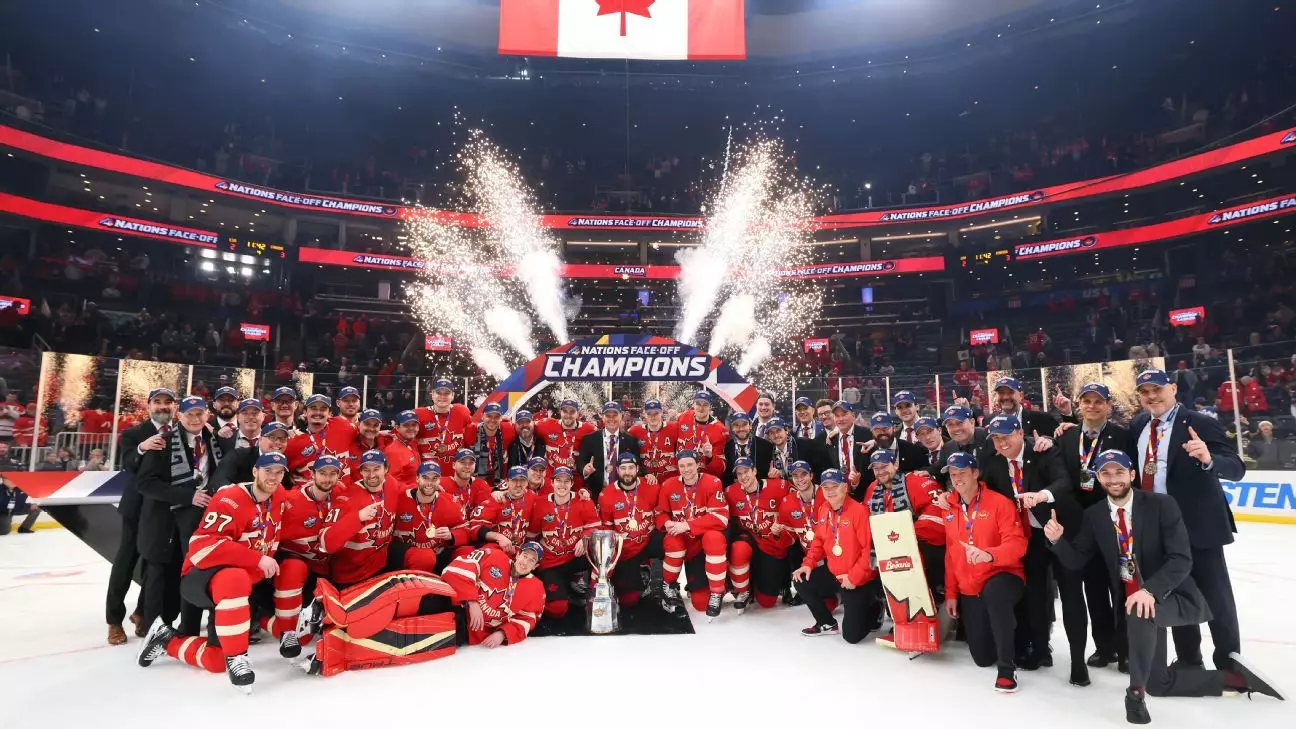The National Hockey League (NHL) is gearing up for a transformative shift in its annual All-Star showcase, following the recent triumph of the 4 Nations Face-Off tournament. This innovative format, which replaced the conventional All-Star Game for a welcome breath of fresh air, has set the bar remarkably high for what fans can expect moving forward. Commissioner Gary Bettman has articulated a big vision for the NHL’s all-star activities, signaling that the league aims to elevate this event beyond its previous iterations.
The 4 Nations Face-Off brought together elite talent from North America and Europe, showcasing a four-team round-robin format that concluded with Canada reasserting its hockey dominance, thanks to a memorable overtime goal from Edmonton Oilers’ superstar, Connor McDavid. Such events not only rekindle the passion associated with hockey but also bring back the essence of competitive rivalry that fans yearn for—elements that have often been diluted in previous All-Star formats.
The Impact of International Competition
The undeniable success and positive reception of the 4 Nations has left the NHL in a state of introspection. Bettman has hinted at exciting possibilities for an event hosted in February 2026 at New York’s UBS Arena, where the best of the best will showcase their talents in a refreshing and revamped tournament setup. The earlier gamble of moving away from the traditional All-Star model has proven fruitful, giving rise to speculation that this could be a permanent shift for the league.
Furthermore, the dialogue surrounding NHL players’ participation in upcoming international competitions, like the 2026 Milano-Cortina Winter Olympics, has reignited hopes for a renaissance in professional ice hockey on the global stage. As the league anticipates a meeting with the International Ice Hockey Federation (IIHF), one can only hope that the NHL will fully embrace its role as a pivotal player in promoting the sport worldwide.
Creating Momentum for Change
The NHL’s progressive approach has not gone unnoticed, and Bettman emphasizes the importance of maintaining a dialogue with fans and stakeholders regarding the future of the All-Star branding. With every decision, the league appears committed to not just delivering entertainment but also fostering community engagement, which is refreshing in today’s entertainment landscape. Bettman stated, “Everything is on the table,” suggesting a willingness to rethink conventions that have long defined the All-Star weekend.
The league’s deputy commissioner, Bill Daly, has taken a similarly optimistic view, emphasizing that the NHL is ready to unveil plans before the playoffs kick off in mid-April. Such communications build anticipation among fans while serving as a reminder that the NHL is attentive to its audience’s desires for a more exciting and meaningful display of talent.
Collective Bargaining Talks and Future Challenges
Beyond the excitement surrounding the All-Star events, the NHL is also bracing for significant collective bargaining discussions with the Players’ Association in early April. As the current collective bargaining agreement approaches its conclusion, both sides will need to navigate the landscape carefully to ensure the league’s stability and the players’ rights are preserved. Fortunately, Bettman has conveyed confidence that the negotiations will be conducted in good faith, hoping for outcomes that benefit both parties.
Issues such as junior hockey eligibility are already on the table and might lead to evolutions in the way young talent transitions to the pro level. Overhauls in policies and practices could massively impact the future of talent development, mirroring larger trends in collegiate sports and minor leagues.
Embracing Flexibility in Draft Formats
The NHL is also exploring new horizons with its upcoming decentralized draft planned for June 2025, which involves only select representatives from the 32 clubs gathering in Los Angeles. This fresh approach to the draft is innovative and responsive to clubs’ needs for more autonomy and streamlined operations. It acknowledges the realities of modern sports management, especially in an age where location and logistics can greatly affect player scouting and engagement.
While the decentralized format has been met with enthusiasm, it remains to be seen how it will impact the draft experience in the long term. Bettman has assured fans that the NHL will be ready to adapt based on feedback and interest, reflecting a genuine willingness to innovate while remaining grounded in tradition.
The NHL is undoubtedly on the cusp of a new era, with its leadership actively seeking to redefine how fans connect with the sport. As they navigate new territories both in competitive formats and organizational structures, the league might very well usher in an exciting chapter in professional hockey that resonates with both ardent fans and newcomers alike.


Leave a Reply